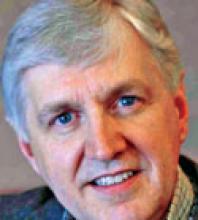In deciding how to live as Christians, the church is called to rely on the Holy Spirit and use Scripture, prayer and the family of faith, as it determines responses to the circumstances of its unique family. One purpose of Mennonite Church Canada is to discern issues of faithful living for our times. To facilitate this purpose, MC Canada has initiated Being a Faithful Church (BFC), a process to build capacity for healthy, faithful discernment.
When telling of God’s purposes in a particular matter, Scripture often speaks more than once. Jesus said, “You have heard that it was said, you shall love your neighbour and hate your enemy, but I say to you, love your enemies. . . .” The church carries a similar responsibility as it discerns God’s will for our time. When the church “speaks again,” it does one of three things: It says the same thing it has said before (loving the enemy means pacifism); it makes incremental changes (moves from no resistance to non-violent resistance); or it says something new (possibility for a changed understanding).
Five focus issues have been identified for the process:
- Unity and diversity in the church;
- Being a Peace Church;
- Witness in the context of religious pluralism;
- Sexuality in the life of the church; and
- Perspectives on ecological concerns.
The BFC process has six components:
- Wide participation. Individuals, congregations, area conferences and special interest groups will be invited to contribute.
- Affirmation. While working through issues, the church affirms past discernment, such as the Confession of Faith in a Mennonite Perspective, as having authority until the church speaks again.
- A missional calling. The church is called to be attentive to the transforming initiatives of God in creation and to extend Christ’s love to all people.
- Discerning together. MC Canada speaks to issues only after discussions and approval by delegates from the 225 congregations and five area churches at a delegate assembly.
- Unity. Our unity is given to us by Jesus. It is our prayer that the discernment process will energize the church. Discernment is part of our life together as MC Canada.
- Understanding. A commitment to be the kind of church that makes a place for those who have an alternative understanding to the majority.
Proposed next steps for the BFC process:
- July 2011 assembly: Discussion and decisions of parameters for the next four to five years as outlined in the BFC Paper No. 3.
- September 2011 to March 2012: Discussions of criteria to guide interpre-tation of Scripture.
- July 2012 assembly: Approval of criteria for interpretation. The study theme for BFC will focus on scriptural interpretation.
- September 2012 to March 2013: Begin discussions on sexuality in the life of the church, with reference to specific questions such as common-law marriage, same-sex relationships, extra-marital sex, pornography or other issues.
- July 2013 assembly: The church will begin to speak on specific issues of sexuality when it is ready.
- September 2013 to March 2014: All parties are invited to reflect on preliminary discussions/decisions made at assembly.
- July 2014 assembly: MC Canada will speak again on some of the issues.
Andrew Reesor-McDowell is the moderator of MC Canada. See current BFC documents here: http://www.commonword.ca/Browse/1659



Add new comment
Canadian Mennonite invites comments and encourages constructive discussion about our content. Actual full names (first and last) are required. Comments are moderated and may be edited. They will not appear online until approved and will be posted during business hours. Some comments may be reproduced in print.